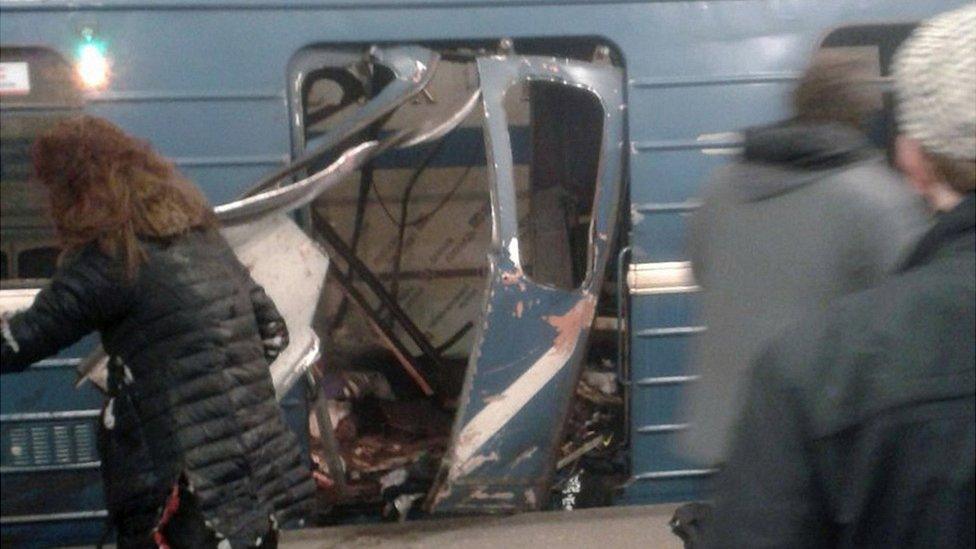St Petersburg attack is met with shock and defiance
- Published
Ulvi Fatullayev describes the moments after Monday's blast
Ulvi Fatullayev rarely rides the metro. But on Monday afternoon the St Petersburg traffic was so bad that he abandoned his car and headed underground. It was a decision that almost cost him his life.
Seconds after his train had pulled into the tunnel from Sennaya Ploshchad station, disaster struck.
"There was a loud bang and a flash. There was lots of smoke and then panic. People were shouting, some were crying.
"The lights in the carriage went out. It only took me a couple of seconds to realise there had been an explosion."
The "loud bang" Ulvi heard was a bomb exploding in the next carriage.
"For a second the train stopped. Then it accelerated hard. I was terrified there would be a second blast and a fire. I feared for my life. Anyone in that situation would.
"When the adrenalin is pumping the instinct of self-preservation kicks in. And you worry about your parents: how will they live without you? All these thoughts were going through my head as I stood there.
"The journey through that tunnel must have been no more than two minutes. But it felt much longer.
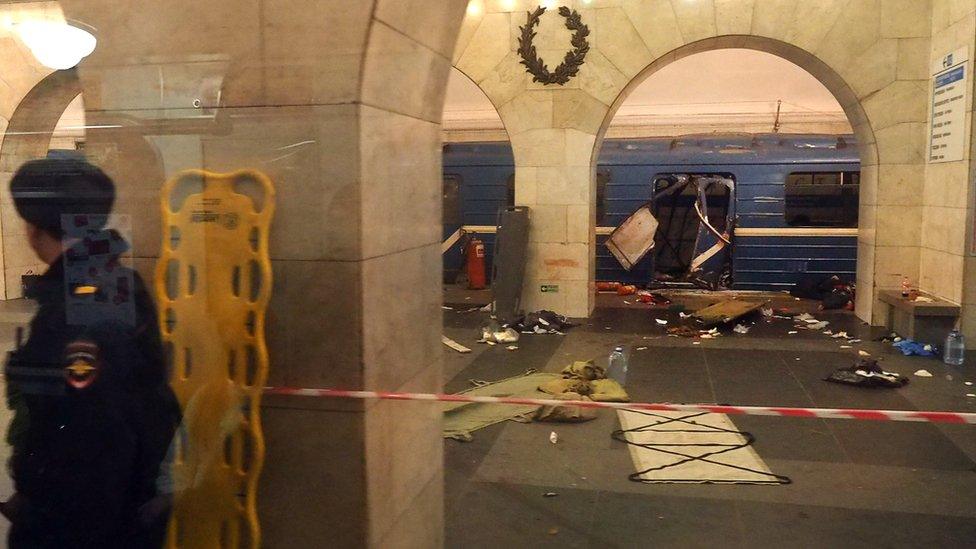
Monday's attack killed 14 people and injured almost 50
"When the train reached the next station, Tekhnologichesky Institut, it broke hard and I hit my head. I got out of the carriage, but I was in shock. I could hardly stand up.
"The scene was horrifying - there was blood and there were body parts. I had never seen anything like it. People were breaking windows and doors to try to rescue passengers. A man approached me and offered to help me to the surface."
At least 14 passengers were killed in the bombing on St Petersburg's metro on Monday.
Russian investigators believe a 22-year-old man, Akbarzhon Jalilov, had detonated an explosive device. Minutes before, he had planted another bomb at a different station. This device was later discovered and made safe.
Jalilov was born in the Central Asian country of Kyrgyzstan, but reportedly took Russian citizenship.
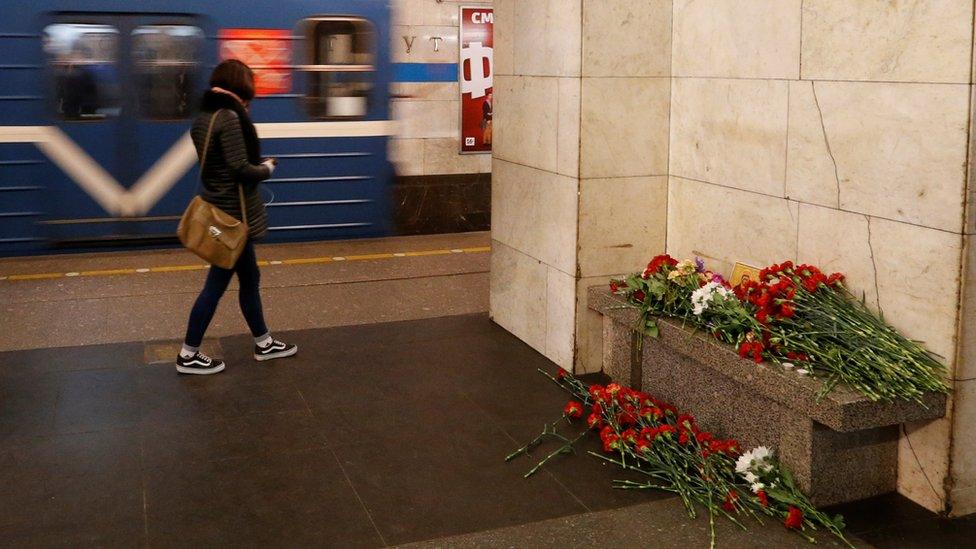
A makeshift shrine has appeared on a platform at Tekhnologichesky Institut station
Russian media on Wednesday labelled him a "suicide bomber" and claimed that he had been recruited by so-called Islamic State (IS) in 2014.
The day after the bombing, the city was trying to return to normal. The wreckage had been cleared and trains were once again running through Tekhnologichesky Institut station.
But at the bottom of the escalators, passengers stood and stared at a makeshift shrine of flowers and candles on the platform. One commuter crossed himself in the Orthodox style and recited prayers for the dead.
'You won't scare us'
This act of terror on an underground train has shocked St Petersburg. The metro is the lifeblood of the city. Two million people ride it every day.
But there is an air of defiance here.
"You won't succeed in scaring us. We are strong!" declared Wednesday's St Petersburg edition of the popular Russian tabloid Moskovsky Komsomolets (MK).
"We're frightened, but we're not going change our way of life," insisted the newspaper Novaya Gazeta.
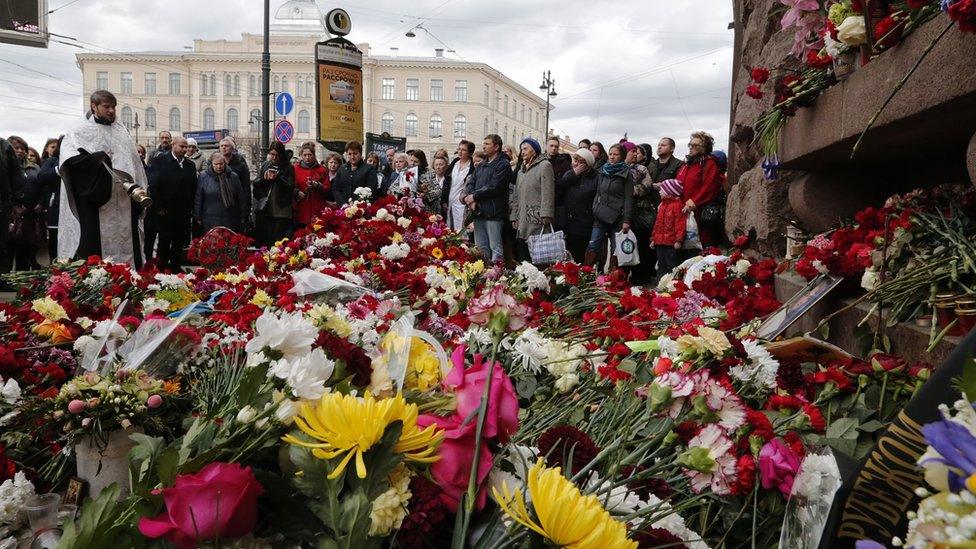
Oksana Batayeva, who heard the explosion while waiting at a metro station, said Russians were "united"
"This kind of thing can happen anywhere - at a bus stop or in any crowd. You can't protect against this now," Oksana Batayeva said. Oksana was at Sennaya Ploshchad station on Monday and heard the explosion.
"They want to divide us, the terrorists do," she said, adding: "But we're united. When there's some kind of war, it brings Russians together. It's just a shame that it takes such events to do that."
Ulvi recalls how the people of St Petersburg got together to help one another following Monday's attack.
"When the metro system was shut down, drivers offered passengers free lifts in their cars. That's how our city showed its level of culture," he said.
"As for being frightened, yes, I do feel some fear. But I think this will pass."
- Published19 April 2017
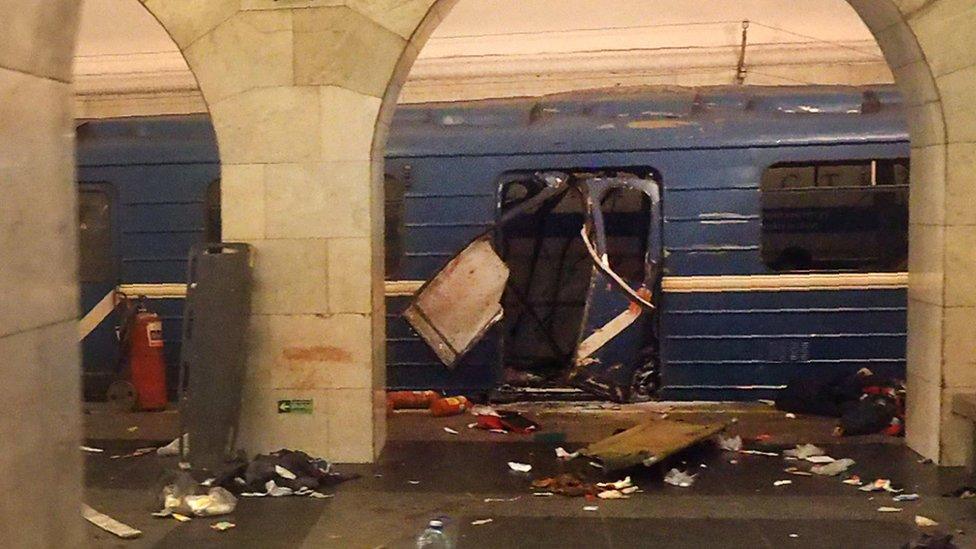
- Published4 April 2017
- Published4 April 2017
